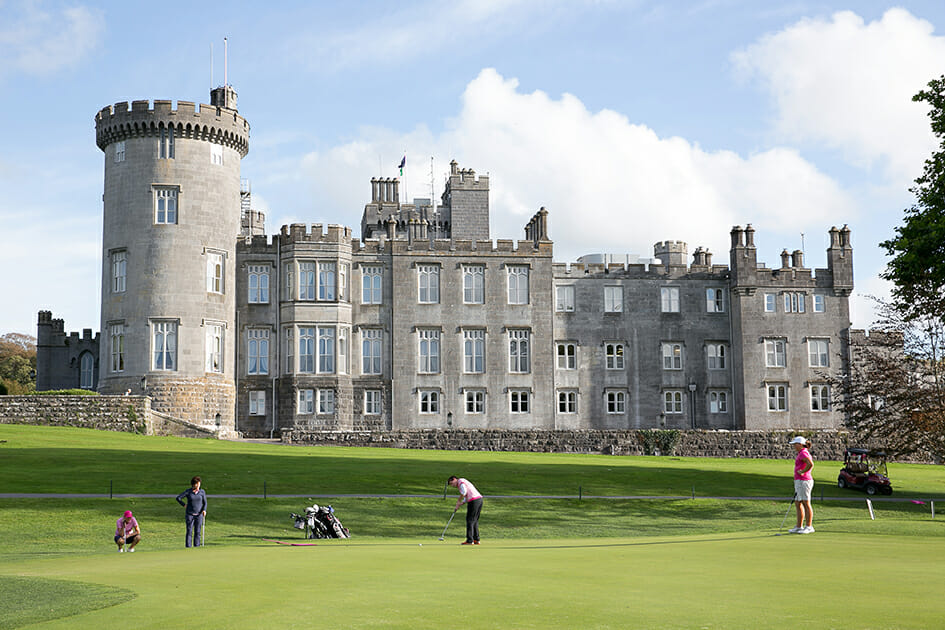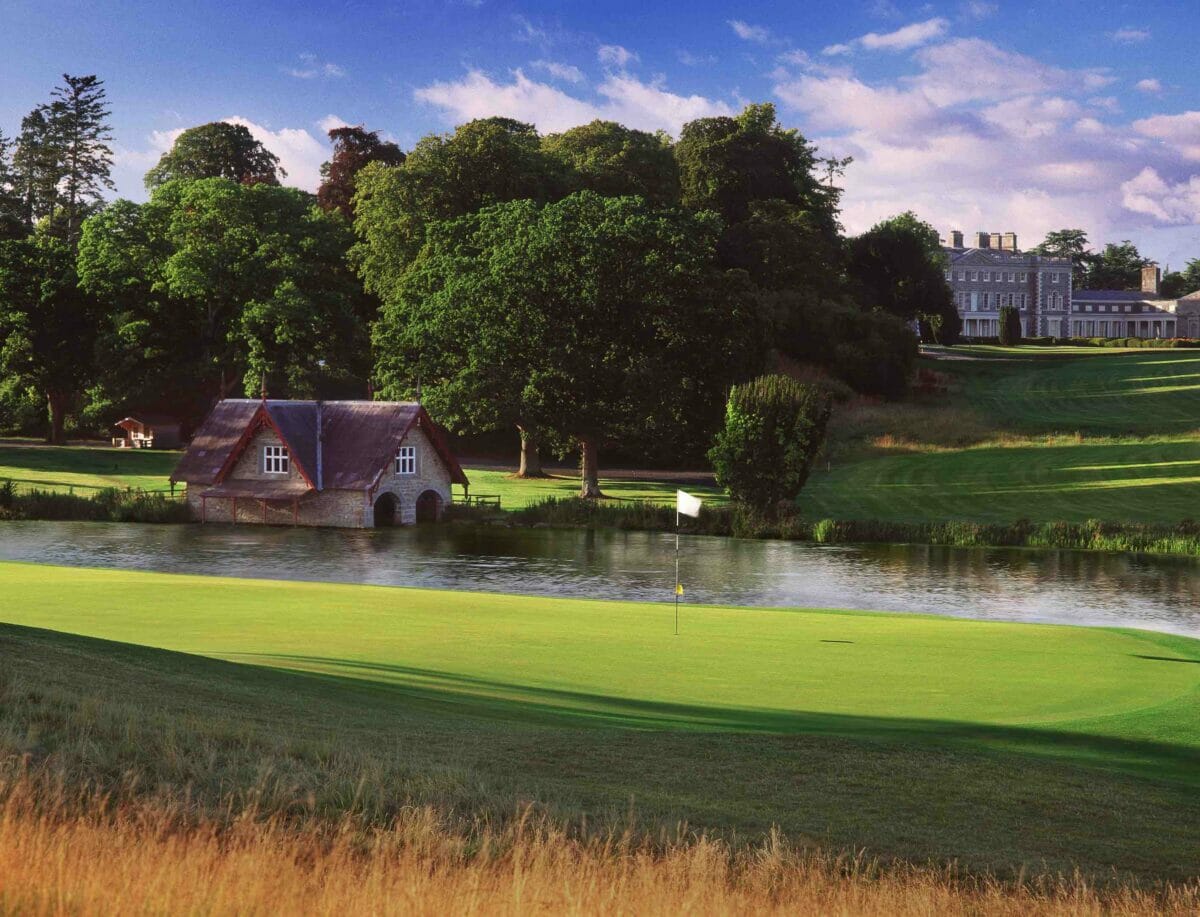“It’s a disaster for our business. An unprecedented and unexpected disaster. We’ll never recover.”
That’s how the Covid-19 effect was described to me in March during the early stages of lockdown by a golf club manager who will remain nameless.
At the time he was voicing an opinion many of us were feeling. We knew that we were facing a prolonged period of lockdown worldwide, but everything else was unsure and the end date was unknown. Scary stuff.
We were trying to stay strong and have a positive outlook but inside we were all afraid of what was coming down the line, not just for our businesses, but for our way of life, and in certain cases, our actual lives.
The worm hasn’t turned, but the signs are there that we’re in a recovery stage now and while the statistics we receive every day are still frightening, we’ve all started to see the green shoots in terms of our personal lives, our jobs and our businesses, which give hope for what is yet to come.
“’Making the most of what we now have’ simply must be the mantra going forward and there’s no doubt that there are businesses, golf courses included, that simply won’t recover,” said Gordon Smyth of PGA National Ireland Slieve Russell.
In the face of disaster, when things were at their worst, golf was deemed as one of the few sports that could be played with the requisite social distance and it was also identified as one that provides significant mental and physical health benefits.
Thankfully, golf wasn’t left in limbo like other sports such as soccer and GAA who have no definite return to action dates as things stand and it’s partly due to this, coupled with the strength of the industry, that the overriding vibe from course managers around the country is one of cautious positivity.
Eamonn O’Donnell, Director of Golf at Dromoland Castle commented; “Golf was one of the first sports to be given the opportunity to get back open and people have been very respectful. We’re in a unique position as an industry right now and how we react to it will determine how well we can bounce-back.”
“At Dromoland, the main core of our membership is from within the 5k radius so the phase one opening has been very busy. We’ve seen a rise membership enquiries too which in part is due to many people returning to the area who are working from home for the longer term.
“Also, in the West of Ireland GAA & Rugby are very important pillars of the sporting community and with those sports on hold for the foreseeable future, these players are looking to take up golf and hopefully we can keep them involved into 2021 and beyond.”
There are green shoots in evidence in terms of membership enquiries but what about the business that’s been lost through March, April, May and beyond?
“Business just stopped in March but thankfully most of our course bookings from April onwards have moved to later in the year or have been pushed out to 2021,” added Gordon Smyth.
“Our inaugural Lakeland Challenge Tournament has been moved to September along with our open week and we’ve seen a large influx of membership enquiries recently too. Unfortunately, we’ve had to cancel our Pro-Am for 2020, but we’re optimistic for business going forward”.
These sentiments were echoed by Stephen Nelson of Carr Golf who commented that; “As soon as the Government said that golf could reopen, we saw a membership spike for all our venues. At one point we were receiving between 30-40 enquiries a day, it was unprecedented.
“From our perspective the people enquiring about membership were known to us for the most part and we had been communicating with them over 12-18 months. Referrals formed a part of the mix too and while the level of enquiries was unexpected, it has certainly been a welcome boost to help with running costs while green fee and F&B revenues have stopped.”
The negatives meanwhile are well documented of course and all golf courses have had little or no revenues for a few months.
“It’s a difficult position to be in,” commented Jason Totos, Director of Golf at Carton House.
“But on the positive side the increase in enquiries for membership has been quite dramatic and we’ve been comforted by the fact that most societies have moved to later in 2020 or have rebooked for 2021 as we reacted quite quickly in contacting all our major business in the early stages and moving it where possible.
“I think more tellingly, there has been no hesitation in recent weeks from consumers planning to come in July or August. They are very comfortable with whatever restrictions will be in place at that time and they are confident in booking now which shows how far we have come.”
“In general, I think the market will be very interesting. It will give consumers an opportunity to experience something different and if you can show the market that you have a great product and a good service, you are going to do well,” he added.
With self-isolation measures in place for overseas tourists, the golf industry now has to plan for little or no revenue from overseas for the remainder of 2020. O’Donnell says the focus has to turn to the domestic market:
“The majority of golfers in the high season here at Dromoland would typically be overseas tourists but we now have to redirect our focus. We have received plenty of goodwill from the Irish market and when people have the opportunity to travel for weekends away or midweek breaks, I’ve no doubt that they will look to Ireland wherever they can and plan a staycation.”
Surprisingly, the tone is one of calmness in general terms for what the future holds.
“Golf is likely to be for the foreseeable future the only competitive sport people can take part in,” added Stephen Nelson. “The transient golfers we had seen as society members rather than golf course members seem to be now moving to a membership model and committing to a venue. The challenge now is to try and satisfy this demand, mindful of reduced timesheet capacity while also keeping current members happy.”
“I think golf as an industry was well prepared for what we had to put in place to get the game open again. Customers have been superb in their compliance with the restrictions and we now have to maintain this standard of care and compliance to ensure we can move to the next phase.”
While O’Donnell added; “Like many other courses, we have special GUI & ILGU rates on offer for golf and have also introduced a special package which combines 2 nights B&B at Dromoland Castle with golf at Dromoland and Doonbeg.
“It’s being really well received so far and hopefully we’ll see many more Irish visitors for the remainder of 2020.”
As for how the traditional Irish golf tourist hotspots are faring with little or no chance of business in the coming months? Well, there’s little doubt that they will be first in the queue for a handout.
They were after all the first to be featured on the news at the beginning of this lockdown, but they’re facing a bleak 2020 if they remain reliant on overseas traffic. If they play their cards right, luxury establishments could come out of this with a positive image domestically but the number of Irish golfers who are going to pay €200+ for a round of golf is limited.
When you consider that the big South West courses for example are losing an entire season of golfers from North America, they will surely have to turn to the local market? But whether what they offer is something we can afford remains to be seen.
If it’s any comfort, far from being an exclusively Irish problem, the global impact of Covid-19 means the sun-baked fairways of Spain, Portugal and beyond, almost wholly reliant on visitor green fees, will also be left to count untold costs this year.
The borders there are opening now and tentative dates at the end of June / early July for leisure travel are being touted with Peter Walton, CEO of the International Association of Golf Tour Operators confident the wider industry can recover.
“While golf tourism is not immune to global or regional crises – be they economic, security, environmental or health by nature – a downturn in visitor arrivals often goes hand in hand with a tightening of belts, [but] we have seen over the past two decades that golf travel bounces back quicker than most other tourism industry sectors once the risk or fear has run its course.”
All this being true, we can’t forget that for many golf clubs, this pandemic has provided an insight into what can be achieved when our backs are to the wall and we absolutely, positively have to survive.
Every course manager, golf pro and greenkeeper needs to be thanked for their contribution to maintaining our wonderful facilities throughout the lockdown and if the smiles on the faces of golfers are anything to go by, they’ve done a great job.
We’re all very happy to be back playing, in the sunshine for the most part too, and the clubs that have adapted to the situation will be more robust going forward. The opportunities, limited though they may be, are there to be seen and while 2020 won’t go down as the best year ever in golfing terms, perhaps 2021 might do just that?



























Leave a comment